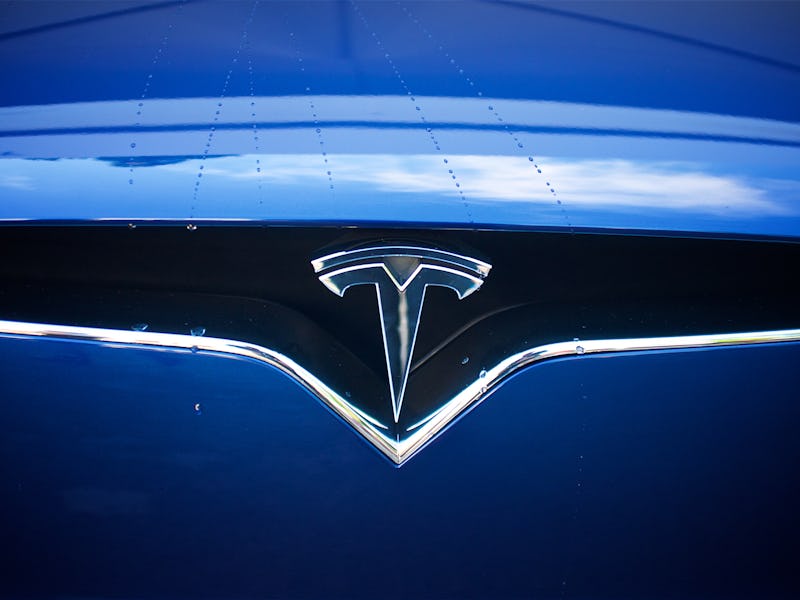How Elon Musk May Have Mysteriously Secured Tesla Private Funds

Tesla CEO Elon Musk is considering a plan to take his company private, buying shareholders out of the business at a price of $420 per share. The unexpected announcement on Tuesday came less than a week after the company’s latest earnings report, just one of the many commitments that Tesla could drop if it ceased being a publicly traded company. It’s an ambitious plan, one that would take a large amount of funding, but there are several ways it could be accomplished.
“Basically, I’m trying to accomplish an outcome where Tesla can operate at its best, free from as much distraction and short-term thinking as possible, and where there is as little change for all of our investors, including all of our employees, as possible,” Musk said in an email to employees.
The plan as outlined in the email would see Musk offering current shareholders a choice. They can remain as investors in a non-public Tesla, or the company will buy them out at $420 per share. That’s a 20 percent premium over the price after last Wednesday’s second quarter earnings call. Musk is aiming for “all shareholders to remain” in a structure very similar to SpaceX, where both employee shareholders and external shareholders have the chance to sell and buy around every six months.
It’s unclear how Musk is going to finance this plan, but he did confirm in his Tuesday Twitter announcement that he’s secured the funding. The CEO owns around 20 percent of the company, and said he does not envision that figure changing too much after the deal. Musk is worth around $21.3 billion, around half of which comes from his Tesla stake, and a valuation at $420 per share values the whole firm at around $71.3 billion. Presumably a lot of investors would stay on, but he’d still need a mountain of cash to finance the corporate restructuring.
Here’s a look at where Musk could get the funds to finance such a buyout:
Saudi Arabian Government
The Financial Times reported on Tuesday that Saudi Arabia’s public investment fund is now one of the company’s largest investors, amassing a stake of between three and five percent that was worth between $1.7 billion and $2.9 billion prior to Tuesday’s price spike. The stake is just below the threshold for public disclosure, but the makes the investment fund one of the firm’s eight biggest shareholders.
The government has expressed strong interest in alternatives to oil and gas, as a means of diversifying the economy as part of its Saudi Vision 2030 plan started by Crown Prince Mohammad Bin Salman two years ago. It’s made big steps in this area, like a deal with SoftBank to build the world’s largest solar farm worth an estimated $200 billion. The government is expected to spend $7 billion on renewables projects this year alone.
However, a strong interest in renewables does not a Tesla funder make. The Financial Times also noted that the public investment fund previously approached Tesla about buying shares, but Tesla didn’t take any action and the fund had to enlist JPMorgan to purchase through secondary markets.
Musk has a strange relationship with Larry Page. The latter is the co-founder of Google, who now serves as CEO of the search engine’s parent company Alphabet. Both Google and its owner are working on a lot of interesting artificial intelligence projects, but the prospect of super-advanced machines taking over the world keeps Musk awake at night.
“They have a funny relationship,” Musk biography author Ashlee Vance told Vice in 2015. “When Elon’s in Silicon Valley, he doesn’t have a house so he stays at a hotel or goes to his friends’ houses. That’s how he keeps in touch with people. So, he stays with Larry, but then, at the same time, Elon thinks Larry Page his buddy may very well be working on the end of mankind and some evil A.I.”
This disagreement has manifested itself in some big ways:
Nonetheless, Page may represent an attractive source of funding for Musk. Page said at a 2014 TED conference that, should he unexpectedly die, he’d rather give his billions to Musk than to charity. And while Alphabet company Waymo is working on similar autonomous car projects as Tesla, the former Google self-driving car project spoke last month about licensing its technology for use in personal vehicles.
Apple
A match made in heaven? Apple’s autonomous car project has seemingly moved from full-blown vehicle to some sort of lidar thing that clips onto cars, as well as pursuing some serious research. It’s not clear what shape “Project Titan” will take if it ever comes to market, and Musk seems unsure as well.
“Ha!” Musk said in May 2017 during a conference call, when analyst Adam Jonas asked if Tesla could partner with Apple. “I don’t know what they’re going to do on the car front; it’s not clear.”
Don’t throw away your Apple betting slip just yet, though. In February 2017, Musk did tell Bloomberg that he had conversations with Apple, but he could not disclose much about the substance of the talks.